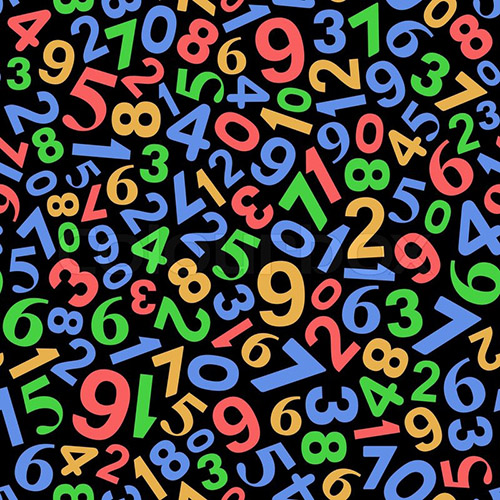
It usually is not a good idea to pick favorites but one could argue that when it comes to numbers, some are better than others. This certainly is true when playing the lottery or the roulette wheel and it also is true in the Jewish world.
For example, in the context of Jewish history, the number 10 arguably is more prestigious than the number 9. How many commandments were carved on the tablets? 10. How many righteous individuals were required to avoid the destruction of Sodom? 10. How many people do you need to make a minyan? 10. (If cheerleaders try to form a human Menorah, how many people do they need? 10, including 8 candles, 1 Shamash and 1 to snap the selfie for social media.) So, 10 is a wonderful number, a number to be proud of and a number of great importance.
The number 9 is a different story. While there are a few positive connections to the number 9, it is a number that is commonly associated with the 9 days of Av, a period of sorrow and mourning during which a wide array of joyful activities are prohibited. In fact, it probably would be a lot easier to list the things that are not prohibited during the 9 Days of Av because it would be a fairly short list. It would include things like breathing, blinking, thinking, sleeping and sneezing.
The number 9 actually has at least one valid gripe when it is compared to the number 10. For example, consider the following hypothetical scenario:
Rabbi: Do we have a minyan?
Congregant: No, we only have 9 but can’t we proceed anyway?
Rabbi: Have you ever watched a professional basketball game?
Congregant: Yes.
Rabbi: Do they ever play with less than 10?
Congregant: No.
Rabbi: Well then, you have your answer.
Congregant: But are we also going to take a break for halftime?
This is merely a hypothetical but it truly must be devastating for the number 9 to endure such a lack of appreciation. Then again, there is a counterargument; the number 9 creates the possibility of achieving a minyan of 10. And if that doesn’t help then the number 9 should just be happy that it is not number 11 because when it comes to making a minyan, number 11 is about as useful as a spare tire. Take this hypothetical scenario into consideration:
Congregant: Rabbi, I’m here for the minyan! How many do you have?
Rabbi: Thank you, but we already have 10.
Congregant: But I woke up extra early, rescheduled my appointments and ran a red light and a stop sign on the way here just to make the minyan.
Rabbi: That is truly wonderful but we already have 10. That said, you are welcome to join us.
Congregant: Thanks Rabbi and by the way, is there a special prayer for defeating a speeding ticket?
Other numbers also have it rough. Think about how insignificant the number 39 must feel. How many days and nights was the flood in the story of Noah? 40. How many days and nights was Moses on Mount Sinai? 40. How many years did the Jews
wander in the dessert? 40. And, in contrast, how many momentous events involve the number 39? Zero. Zilch. Zip. Nada. The number 40 gets all of the notoriety while 39 is constantly coming up short. (In the interest of completeness, we must note that the number 39 does correspond to the number of activities that are prohibited on Shabbat. Perhaps the number 39 is used in this instance to make up for all of the other near misses.)
In theory, there are many other numbers that do not get a lot of fanfare in the Jewish world but arguably deserve more recognition and respect. For example, what about the number 1,000,000? Think about how often that is used in a Jewish home, e.g.: (i) “For the one millionth time, please clean your room!”; (ii) “Honey, the cholent was fantastic. Thanks a million!”; and (iii) “Is it just me or has the shul sent out a million reminders about the annual dinner?”
And what about the number zero? That too is widely used in the Jewish world, e.g., “I’m sorry, we’ve run out of the sesame seed challah. We have none left. Zero!” Or consider this hypothetical scenario:
Jew #1: If I had to rate my date last night, I’d give it a zero.
Jew #2: Why? You said the restaurant was lovely and the food was delicious.
Jew #1: Yes, that’s true.
Jew #2: So why do you give the date a zero?
Jew #1: Because she never showed up.
Final thought: With respect to the commandment that you should be “fruitful and multiply,” the second part does not mean that you should spend all day solving mathematical problems that result in a product.
By Jon Kranz









